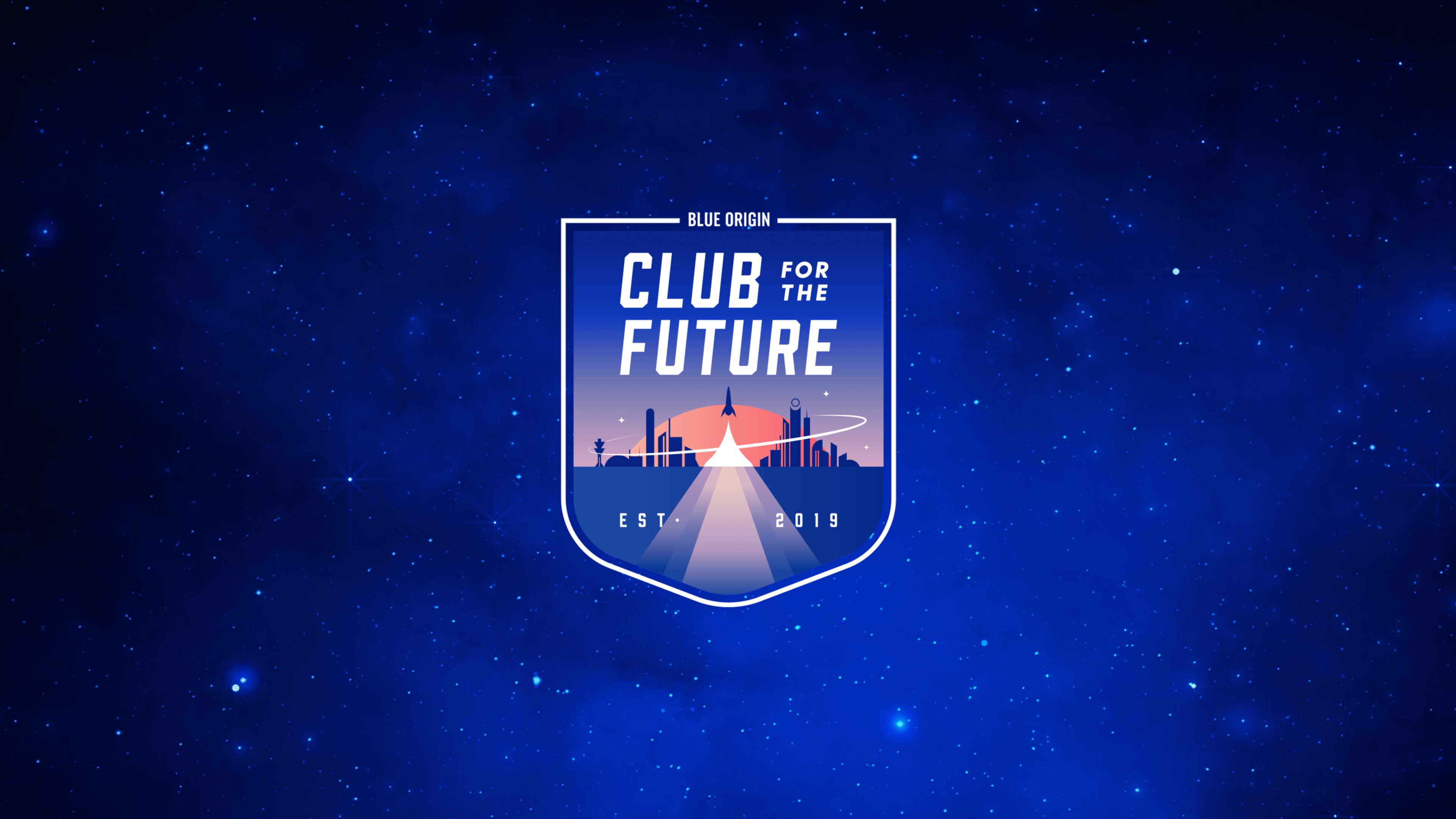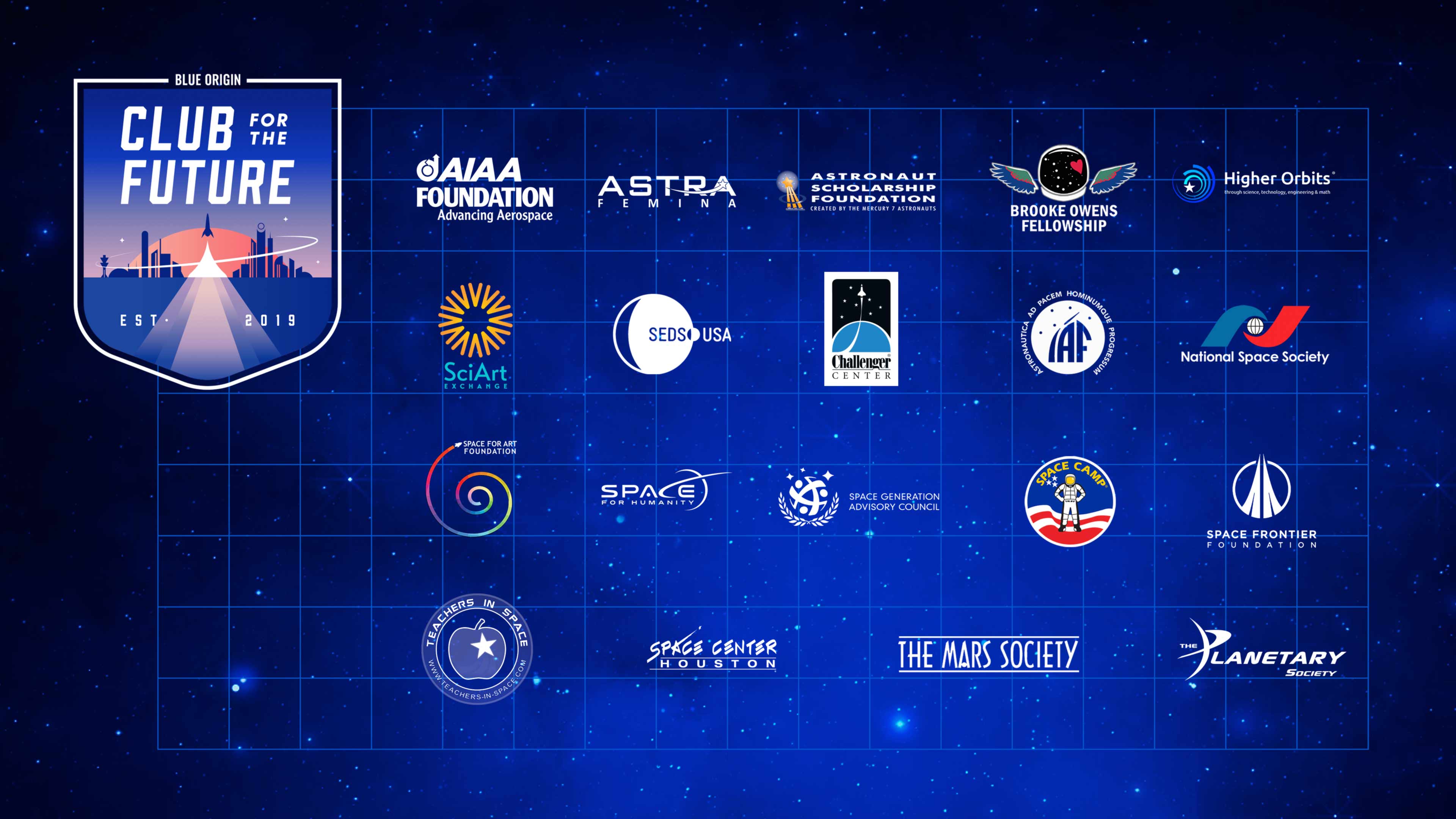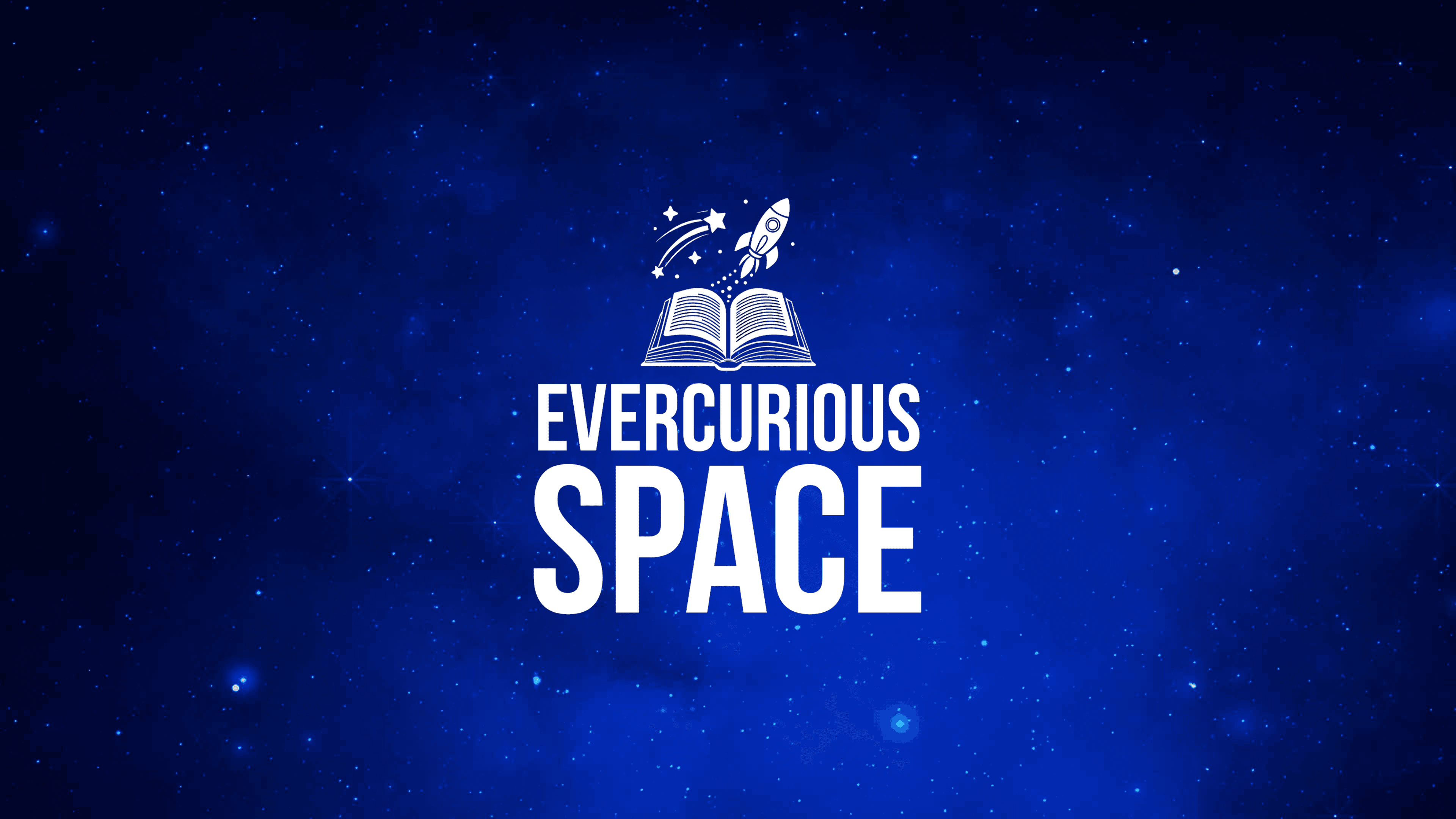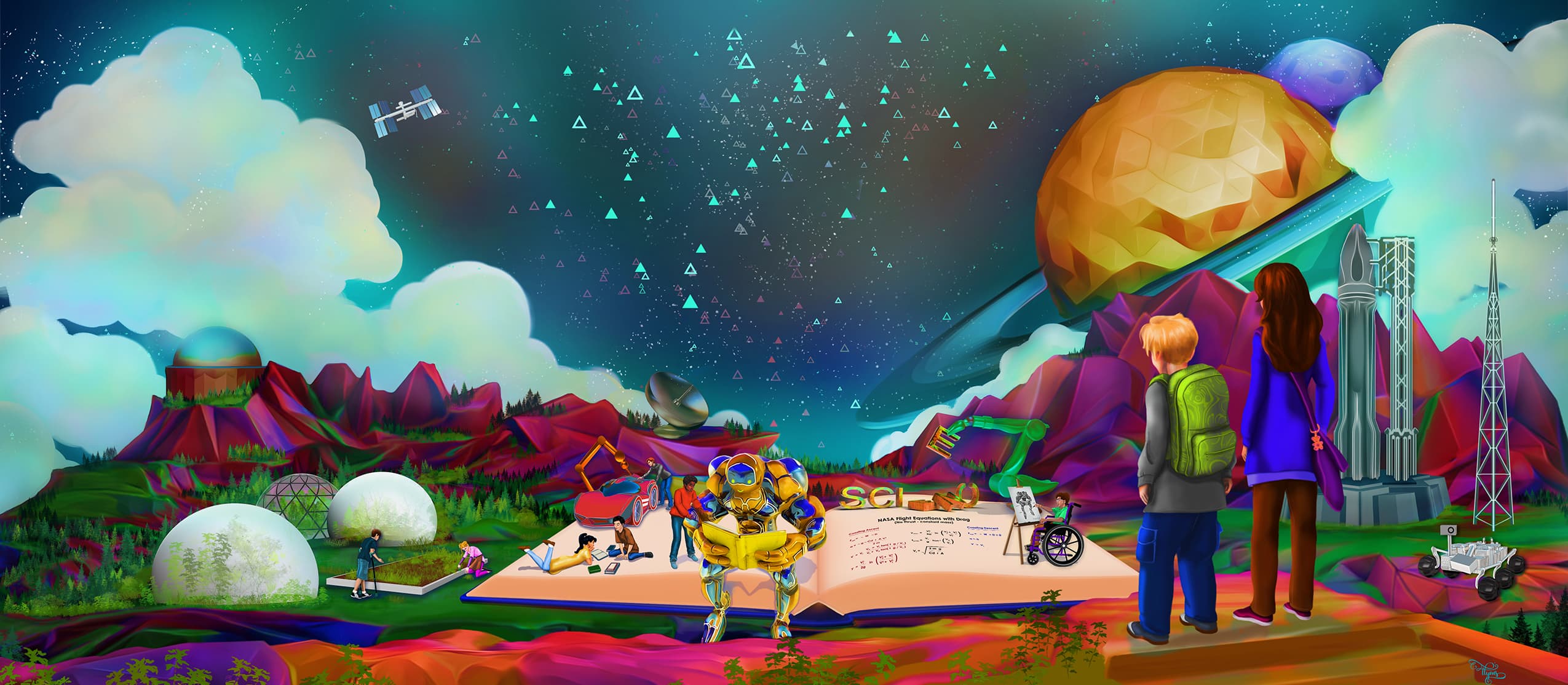
Club for the Future selects 19 space-based charities to each receive a $1 million grant
Today, Blue Origin’s foundation, Club for the Future, announced 19 non-profit charitable organizations will each be offered a $1 million grant to inspire future generations to pursue careers in STEM and help invent the future of life in space. The funds are made possible by the recent auction for the first paid seat on Blue Origin’s New Shepard rocket.

Each of the organizations selected have demonstrated a commitment to promote the future of living and working in space to inspire the next generation to explore space careers. They enhance Club for the Future’s ability to reach students, teachers, and communities, and to engage them in the excitement and adventure of innovation and space exploration.
“Our recent auction for the first seat on New Shepard resulted in a donation of $28 million to our non-profit foundation, Club for the Future,” said Bob Smith, Blue Origin CEO. “This donation is enabling Club for the Future to rapidly expand its reach by partnering with 19 organizations to develop and inspire the next generation of space professionals. Our generation will build the road to space and these efforts will ensure the next generation is ready to go even further.”
The 19 organizations include:
- AstraFemina is a collective of prominent leaders, including astronauts, academic professionals, and industry innovators, who have made a significant difference in the world by choosing diverse careers in STEM fields. Its mission is simple but powerful – to serve as role models to reinforce the message to today’s girls and young women that anything is possible and help bridge the gap between believing and achieving.
- The AIAA Foundation, which is connected to the American Institute of Aeronautics and Astronautics (AIAA), inspires and supports the next generation of aerospace professionals. From classroom to career, the AIAA Foundation enables innovative K-12 and university programming, including STEM classroom grants, scholarships, conferences, and hands-on competitions.
- The Astronaut Scholarship Foundation (ASF) provides merit-based scholarships for college students majoring in STEM programs at more than 44 partner universities. Founded by the Mercury astronauts, ASF selects more than 50 Astronaut Scholars each year. They also provide programs focused on career development skills and virtual family activities to inspire K-12 students to positively change and innovate our future.
- The Brooke Owens Fellowship offers paid internships and mentorship for exceptional undergrad women and gender minorities in aerospace. Its spin-off, the Patti Grace Smith Fellowship, provides extraordinary Black students with their first work experience in the aerospace industry, personalized mentorship and a cohort of similarly driven and talented young Black people pursuing aerospace careers.
- Challenger Center, created by the families of Space Shuttle Challenger STS-51L crew, serves more than 250,000 K-12 students each year with experiential, hands-on education programs. The 40 Challenger Learning Centers deliver in-classroom and virtual simulation-based programs to bring STEM subjects to life. Students role-play real world STEM careers and cultivate teamwork, problem-solving, and communication skills.
- Higher Orbits delivers an experiential learning lab for secondary school students across the United States. It focuses on the multi-faceted worlds of space exploration, research and spaceflight in order to launch the next generation our world desires. The organization facilitates activities from the novice to advanced level, drawing from the Science Futures by Design curriculum at Higher Orbits, to promote STEAM and prepare students for academic and career success.
- International Astronautical Federation (IAF) is the leading space advocacy body, including all leading space agencies, numerous companies, research institutions, universities, societies, associations, institutes and museums worldwide. Its Emerging Space Leaders Grant Program (ESL) enables students and young professionals to participate in the International Astronautical Congress, the United Nations/IAF Workshop and Space Generations Congress.
- The National Space Society (NSS) is dedicated to the creation of a spacefaring civilization that provides a citizen’s voice on space exploration, development, and settlement. Its mission is to promote social, economic, technological, and political change in order to expand civilization beyond Earth, to settle space and to use the resulting resources to build a hopeful and prosperous future for humanity.
- SciArt Exchange uses a science-integrated-with-art approach to help change the world through science and technology education, collaboration and innovation. It supports, prepares and convenes people of all ages, backgrounds and affiliations to discuss, and potentially solve, space, science, and technology challenges by offering multi-disciplinary art contests, events, training, consulting, and community services.
- Space Camp, located at the U.S. Space & Rocket Center, provides a one-of-a-kind experience for campers of all ages from every state and more than 70 countries. Its curriculum teaches STEM principles, emphasizing leadership, teamwork, fun and creativity. Program instruction is aligned to national science and math standards and framed with an immersive experience amidst a backdrop of humankind’s greatest technological achievements in space hardware.
- Space Center Houston is dedicated to inspiring all generations through the wonders of space exploration. It is a leading science and space exploration learning center, the Official Visitor Center of NASA Johnson Space Center, a Smithsonian Affiliate and Certified Autism Center. Space Center Houston empowers teachers and students with access to immersive learning experiences where they solve real-world challenges of human space exploration.
- The Space For Art Foundation works with children in hospitals and refugee centers around the world on its mission to unite a planetary community of children through the wonder of space exploration and the healing power of art. Through large-scale space-themed art projects, the Foundation aims to highlight the connection between personal and planetary health and raise awareness of our role as crewmates here on Spaceship Earth.
- Space For Humanity is building a foundation for an inclusive future in space by organizing the planet’s first Sponsored Citizen Astronaut Program, where leaders from any walk of life can apply for an opportunity to go to space. Through its citizen spaceflight program, leadership training, and collaborative efforts to educate the public, Space for Humanity is setting the stage to create a better world, both here on Earth and throughout the cosmos.
- Space Generation Advisory Council (SGAC), in support of the United Nations Program on Space Applications, is a global non-governmental organization and network which aims to focus on pragmatic space policy advice to policy makers based on the interests of students and young professionals interested in space from around the world. The SGAC network of members, volunteers and alumni has 16,000 members from more than 165 countries.
- Students for the Exploration and Development of Space (SEDS) is an international student-led organization whose purpose is to promote space exploration and development through educational and engineering projects. SEDS is fostering the development of future leaders and contributors in the expanding space industry through individual chapters, enabling students to be connected and create networks with each other.
- Teachers in Space is an organization which stimulates student interest in STEM by providing teachers with extraordinary space science experiences and industry connections. As a facilitator of personal and hands-on professional development workshops for STEM teachers, it sparks a transfer of passion that prepares and encourages students to pursue further education and careers in the emerging space industry.
- The Mars Society is an international organization devoted to furthering the exploration and settlement of Mars by both public and private means. Its activities include broad public outreach to spread its vision, STEM programs, student engineering design and Mars rover competitions, conferences, publications, and scientific projects including Mars Analog Research Stations to learn how we might best live, work, and explore on the Red Planet.
- The Planetary Society has inspired millions of people to explore other worlds and seek other life. Led by CEO Bill Nye and powered by space enthusiasts around the globe, the Society works to advance space science and exploration through education, innovation, advocacy, and global collaboration. Its mission is to empower the world’s citizens to advance space science and exploration.
- The Space Frontier Foundation is an organization comprised of a diverse, multinational array of space activists, scientists, engineers, media, political professionals, entrepreneurs, and passionate citizens focused on unleashing the power of free enterprise and leading a united humanity permanently into the Solar System. Through conferences, speakers, policy papers, awards and prizes, they are actively advancing the cause of “New Space.”
Club for the Future will use the remaining funds from the auction to continue its work on its space-focused curriculum and Postcards to Space program.
Blue Origin’s First Human Flight will take place on July 20. For more details about the mission and how to watch the launch live, follow @BlueOrigin on Twitter or sign up for updates at BlueOrigin.com.
Share
Latest Posts
 Oct 2, 2025News
Oct 2, 2025NewsDestination space: EverCurious Space and Club for the Future unite to bring space to life for students across the globe
EverCurious Space LLC and Blue Origin’s Club for the Future have partnered up to help break down barriers to accessing space.
 Sep 16, 2025News
Sep 16, 2025NewsS.T.E.A.M. Race to Space Reading Challenge Partners with Blue Origin’s Club for the Future to Inspire the Next Generation of Space Explorers
The S.T.E.A.M. Race to Space Reading Challenge is thrilled to announce an exciting new partnership with Blue Origin’s Club for the Future.
 Jul 25, 2025News
Jul 25, 2025NewsUNIQLO Announces Four New Designs for PEACE FOR ALL Charity T-Shirt Project
Global apparel retailer UNIQLO announces the worldwide release of four new designs for its ongoing PEACE FOR ALL charity T-shirt project.
